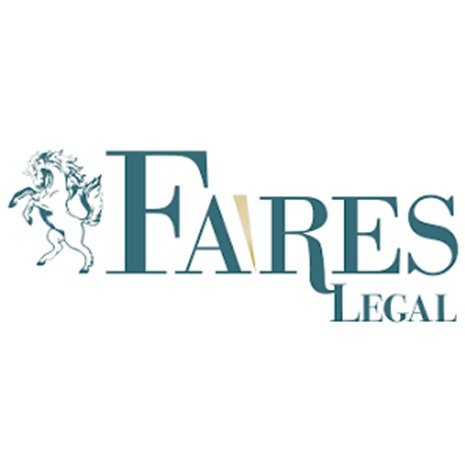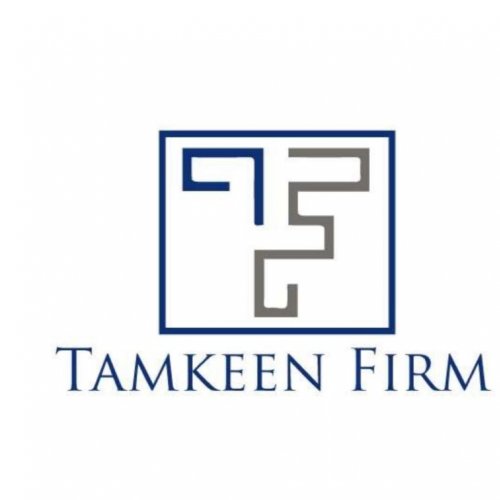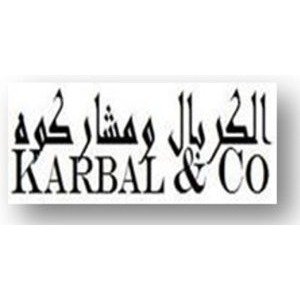Best FDA Law Lawyers in Libya
Share your needs with us, get contacted by law firms.
Free. Takes 2 min.
Or refine your search by selecting a city:
List of the best lawyers in Libya
About FDA Law in Libya
Libya’s Food and Drug Administration (FDA) Law governs the regulation, safety, and quality control of food, pharmaceuticals, cosmetics, and medical devices within the country. The primary authority in this field is the Libyan Food and Drug Control Center (LFDA), which enforces standards for importation, distribution, manufacturing, labeling, and marketing of these products. The law seeks to protect public health and ensure that only safe and effective products are available in the Libyan market. This legal framework is continuously evolving as Libya works to strengthen its regulatory institutions and align with international best practices.
Why You May Need a Lawyer
Navigating FDA Law in Libya can be complex due to strict regulations, frequent updates, and detailed approval processes. You may need a lawyer in the following situations:
- Importing food products, drugs, or medical devices into Libya
- Registering a new pharmaceutical product or dietary supplement
- Obtaining manufacturing, distribution, or marketing licenses
- Facing compliance investigations or alleged violations by the LFDA
- Defending against product recalls or penalties
- Drafting contracts with suppliers and distributors in compliance with local law
- Understanding labeling, packaging, and advertising rules
- Resolving intellectual property issues related to pharmaceuticals or branded products
- Appealing decisions or sanctions imposed by the LFDA
- Dealing with customs clearance and documentation for regulated goods
A lawyer can help interpret complex regulations, advise on best practices for compliance, and represent your interests in dealings with regulators or in court proceedings.
Local Laws Overview
Libya’s FDA Law covers a variety of regulations designed to ensure product safety and protect public health:
- The importation, exportation, and sale of food, drugs, and medical devices is tightly regulated. All such products generally require pre-approval and must meet Libyan quality standards.
- All manufacturers, distributors, and importers must obtain licenses from the LFDA before being allowed to operate in the Libyan market.
- Dangerous or harmful substances are restricted or banned, and all products must be clearly labeled with contents, usage instructions, expiration dates, and manufacturing information in Arabic.
- Advertising and promotion of pharmaceuticals is subject to specific guidelines and must not be misleading or make unsupported claims.
- Product recalls and penalties can be issued if unsafe or unauthorized goods are found on the market.
- Periodic inspections are carried out by LFDA officials to ensure compliance with law and regulations across all stages of the supply chain.
- Customs authorities coordinate with the LFDA to monitor the entry of products at borders for regulatory compliance.
These laws apply to both domestic and international businesses wishing to operate in Libya and are enforced rigorously to safeguard consumers.
Frequently Asked Questions
What is the main body responsible for FDA Law enforcement in Libya?
The Libyan Food and Drug Control Center (LFDA) is the primary government authority responsible for the enforcement of laws related to food, drugs, cosmetics, and medical devices.
Do imported food and drugs need special approval?
Yes, all imported food products, drugs, and medical devices require registration and approval from the LFDA before being released into the Libyan market.
What documents are usually required for product registration?
Commonly required documents include a Certificate of Analysis, Free Sale Certificate, Product Dossier, Manufacturing License, and Arabic labeling information. Requirements vary by product type.
Is local representation required for foreign companies?
Generally, foreign companies must appoint a local agent or representative who is authorized to handle regulatory submissions and official communications with the LFDA.
Are there penalties for non-compliance?
Yes, violations can result in administrative penalties, fines, suspension or revocation of licenses, and recall or seizure of affected products.
What are the key labeling requirements?
Labels must be in Arabic and clearly display the name of the product, ingredients, manufacturer details, batch number, expiration date, and instructions for use. Specific requirements may apply for drugs and medical devices.
Can products be advertised freely in Libya?
No, all advertising and promotional materials for food, drugs, and medical devices must comply with LFDA guidelines and cannot include false, deceptive, or unsubstantiated claims.
What is the process for a product recall?
The LFDA can initiate a recall if a product is found to be unsafe or not in compliance with regulations. The importer or manufacturer will be required to remove the product from circulation and may face further investigation.
How often are businesses inspected?
Inspections may be periodic or triggered by specific complaints, suspected violations, or as part of random regulatory oversight to ensure ongoing compliance.
How can a lawyer assist with regulatory challenges?
A lawyer can review compliance procedures, draft documentation, represent your business in administrative hearings, advise on risk management, and submit appeals if penalties or sanctions are imposed.
Additional Resources
If you require more information or need to engage with official bodies, consider the following resources:
- Libyan Food and Drug Control Center (LFDA) - The primary authority for FDA matters in Libya.
- Ministry of Health - Involved in public health policy and coordination with the LFDA.
- Chambers of Commerce - Can provide information on business licensing and contacts for regulatory experts.
- Local law firms specializing in regulatory and business law - Source for private legal counsel on FDA Law matters.
- Pharmaceutical and Food Industry Associations - Sources for industry updates and compliance workshops.
Consider reaching out to these entities for up-to-date forms, regulatory changes, and specialized guidance.
Next Steps
If you need legal assistance related to FDA Law in Libya, take the following actions:
- Identify your specific issue or question, such as product registration, compliance checks, or dispute resolution.
- Gather all relevant documents, such as licenses, import records, product details, and any official correspondence.
- Consult a qualified Libyan lawyer with experience in regulatory or FDA Law. They can assess your situation and recommend the best course of action.
- Contact the LFDA for clarification on regulations where needed, but always rely on legal counsel for interpreting your obligations.
- Attend any requested meetings or inspections and keep records of all LFDA communications.
- Review your current compliance policies and update them as necessary with professional help to avoid issues in the future.
Taking early action and engaging experienced professionals can help you navigate Libya’s FDA Law requirements more efficiently and avoid potentially costly mistakes.
Lawzana helps you find the best lawyers and law firms in Libya through a curated and pre-screened list of qualified legal professionals. Our platform offers rankings and detailed profiles of attorneys and law firms, allowing you to compare based on practice areas, including FDA Law, experience, and client feedback.
Each profile includes a description of the firm's areas of practice, client reviews, team members and partners, year of establishment, spoken languages, office locations, contact information, social media presence, and any published articles or resources. Most firms on our platform speak English and are experienced in both local and international legal matters.
Get a quote from top-rated law firms in Libya — quickly, securely, and without unnecessary hassle.
Disclaimer:
The information provided on this page is for general informational purposes only and does not constitute legal advice. While we strive to ensure the accuracy and relevance of the content, legal information may change over time, and interpretations of the law can vary. You should always consult with a qualified legal professional for advice specific to your situation.
We disclaim all liability for actions taken or not taken based on the content of this page. If you believe any information is incorrect or outdated, please contact us, and we will review and update it where appropriate.
Browse fda law law firms by city in Libya
Refine your search by selecting a city.











